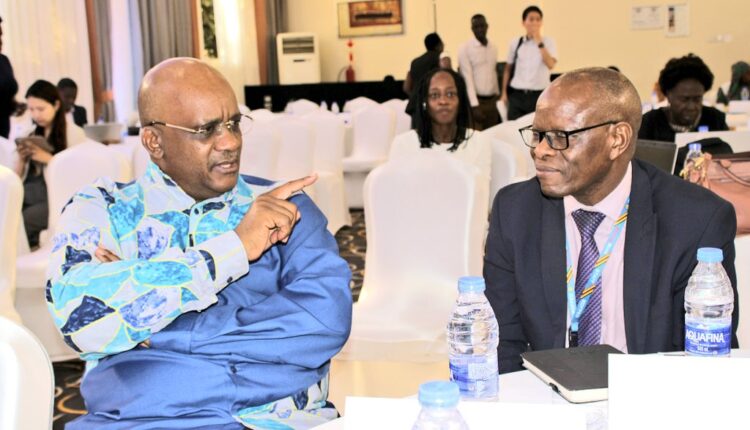By Leonard Kamugisha Akida,
KAMPALA
With donor support expected to decline by 25–50%, Uganda faces real risks to health access and system stability. It’s this dwindling donor funding, that has prompted Civil Society Organizations (VSOs) and Non-governmental Organizations under their Umbrella the Uganda National NGO Forum (UNNGOF) to call for urgent measures to support the health sector.
Julius Mukunda, the Executive Director of the Civil Society Budget Advocacy Group (CSBAG), urges stakeholders in the health sector to focus on improving efficiency in public spending as donor support continues to decline.

Mukunda made the remarks while speaking at the National Dialogue on Health Financing Dynamics in Uganda, held at Protea Hotel in Kampala.
He emphasized that while additional funding for the health sector is necessary, inefficiency and wastage remain the biggest obstacles to effective service delivery.
“Even if this country were given 100 trillion shillings in the next financial year, people would still come back with unfunded priorities. The real question is: how efficiently are we using the little that we already have?” Mukunda said.
He noted that many health facilities continue to grapple with inadequate staffing, delayed delivery of medicines, and non-functional equipment, issues that undermine service delivery despite continued investment.
“You go to a hospital, and the moment they switch on the X-ray machine, it makes noise. Before we talk about building new facilities, we should make existing ones functional,” he added.
Mukunda also stressed the importance of understanding and engaging in the national budget process, saying that civil society organizations and citizens must participate early enough to influence funding priorities.
“You must know the process and the timing. Don’t come at the end when the budget is being finalized. Attend the Human Capital Development Working Group meetings, present petitions to Parliament, and write compelling briefs to influence the Ministry of Finance,” he advised.
He warned that competing interests during the budgeting process often determine which sectors get funding, urging advocates to present clear, evidence-based proposals that can attract government attention.
“There are so many competing interests. Everyone at the table wants their priorities funded. Only those who understand the process and effectively engage will have their voices heard,” Mukunda said.

On the other hand, the Executive Director of the Uganda National NGO Forum (UNNGOF), Dr. Moses Isooba, has called for the strengthening of domestic resource mobilization, saying it is key to sustaining the health sector amid shrinking global aid.
“The health sector has long relied on development partners. That sustainability is now at risk. We must face the reality, donor funding is decreasing, and it’s not coming back,” Dr. Isooba remarked.
“Uganda must invest substantially in health and ensure every shilling translates into better equity, quality, and access,” he emphasized.
Dr. Fahad Mawanda, an official from the ministry of health who represented the ministry’s commissioner Dr. Charles Olaro revealed government commitments to ensuring stronger efficiency, coordination, and domestic financing reforms.
Mawanda noted that the government through the ministry of health is Prioritizing key areas including investing in primary health care, integrating services across all levels, digitalizing resource tracking and building accountability and capacity in public finance, one way of promoting efficiency in the health sector and systems.
The workshop brought together policymakers, civil society representatives, and development partners to discuss sustainable financing mechanisms for Uganda’s health sector as donor contributions continue to decline.
The study emphasizes the need for coherent policy alignment, stronger domestic resource mobilization, and evidence-based planning to achieve sustainable and resilient health financing in Uganda. According to the findings, these measures are critical to reducing catastrophic health expenditures and strengthening the country’s health system.
The study recommends enhancing public-private partnerships, improving accountability, investing in primary health care, and maintaining strategic collaborations to ensure long-term sustainability in the health sector.







































